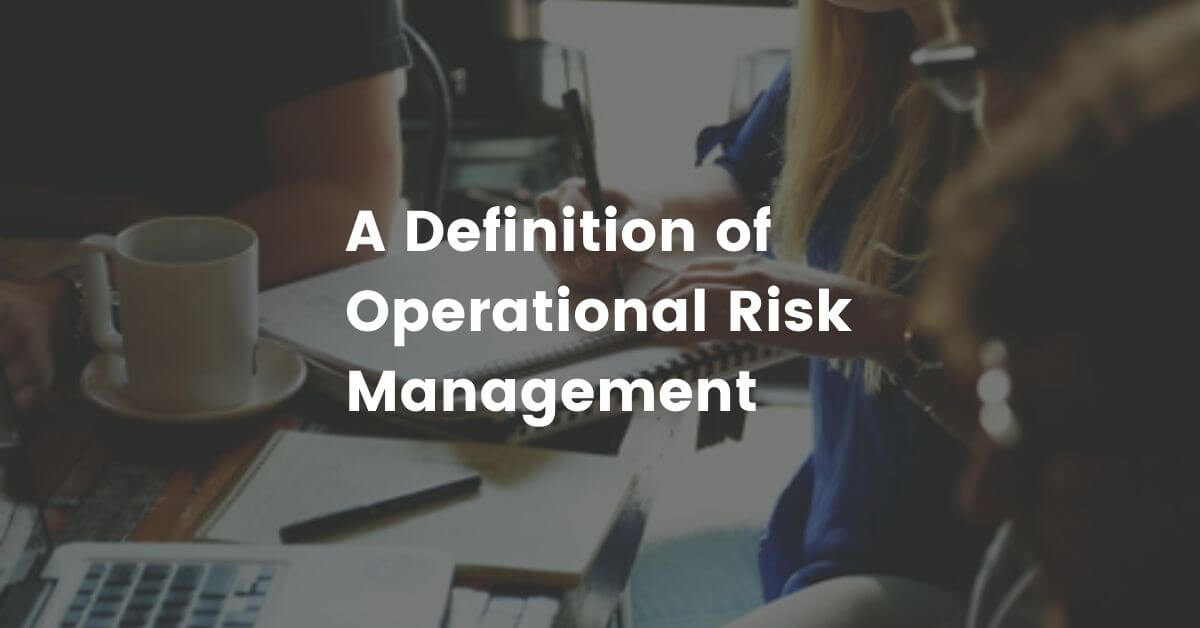It's no secret that risk is an accepted part of any business, and it comes in different forms.
One example is operational risk, and it relates to the risk of failed business processes caused by things like mistakes, criminal activity, or physical events.
As a business leader, you undoubtedly accept that things will happen to your company that can cause ineffective operations.
What's important is how you mitigate those risks - the steps you take to eliminate potential risk exposure and achieve the highest chance of operational success.
With that in mind, operational risk management (ORM) is a risk-averse methodology that focuses on protecting a business.
The following is an in-depth overview of operational risk management:
A Definition of Operational Risk Management
What is operational risk management?
In a nutshell, ORM is about diminishing and even completely removing the risk of specific actions that could negatively impact a business's reputation and, ultimately, its bottom line.
Operational risk management focuses on factors like minimising control failures and customer support issues rather than points like strategic and financial risk.
Primary Objective of Operational Risk Management
Mitigating daily operational risks is undeniably the primary objective of operational risk management.
The methodology focuses specifically on day-to-day operations and provides the best framework for businesses to protect themselves from external and internal harm.
Operational risks are measured using key risk indicators (KRIs) and Basel II event categories.
How Operational Risk Management Works
When it comes to working with an ORM solution, businesses must consider all aspects of their objectives.
Eliminating all unnecessary risks and anticipating (and planning) future ones is what operational risk management is all about.
The way that ORM works can get explained at a low level, as follows:
- Identifying and assessing risks
- Measuring and mitigating those risks
- Monitoring and reporting on them
Categorising Operational Risk Management
When creating an operational risk management control framework, one approach to understanding how to apply processes to your business is categorising the risks.
For example:
- People - employees, customers, suppliers, and contractors
- Technology - internal IT systems, cloud-based systems
- Regulations and compliance
Real-World Examples of ORM
You're probably wondering how you can apply operational risk management (ORM) to your business.
After all: each company operates in different industries, sectors, and niche markets. Additionally, businesses in the same operating environments often do things differently.
The following examples illustrate some real-world examples of how ORM can apply to your business:
Human Error
Some businesses end up with costly and even catastrophic operational issues, and the reason is simply down to human error.
For example, employees might forget to lock an external door before leaving for the day, resulting in theft.
Another example might be contractors not knowing about safety issues at a site, and they could potentially injure themselves and others.
ORM can help with procedures like end-of-day checklists and site safety announcements.
Cyber Attacks
In 2021 alone, 4 in 10 businesses admitted to experiencing cyber security breaches, according to a government survey by the Department for Digital, Culture, Media & Sport.
Cyber attacks can occur in various ways, such as social engineering, malware, and web server DoS (Denial of Service) attacks. Operational risk management can help identify IT security risks and mitigate them.
Employee Conduct
Despite a business leader's best efforts, some people they assume to be "top talent" could be particularly dangerous for their organisations.
For instance, those individuals might have an issue with authority or perhaps not be as customer-focused as they made out in their CVs and job interviews.
When a business has the right ORM methodology, it can mitigate risks caused by poor employee conduct, such as having HR teams follow specific hiring procedures and identify staff training gaps.
How An ORM Will Benefit Your Business
As you can imagine, operational risk management can be highly beneficial for businesses of all sizes. Some of the benefits include:
- Making better-informed business decisions
- Improved customer and supplier relationships
- Better performance reporting
- A more sustainable business model
ORM can also help businesses demonstrate to their customers that they've taken actionable steps to ensure business continuity in a crisis and loss.
Next Steps
Contact us today to if you'd like to learn more about how operational risk management can help your business and how Ark can be your perfect partner to implement an ORM programme.




Leave Comment